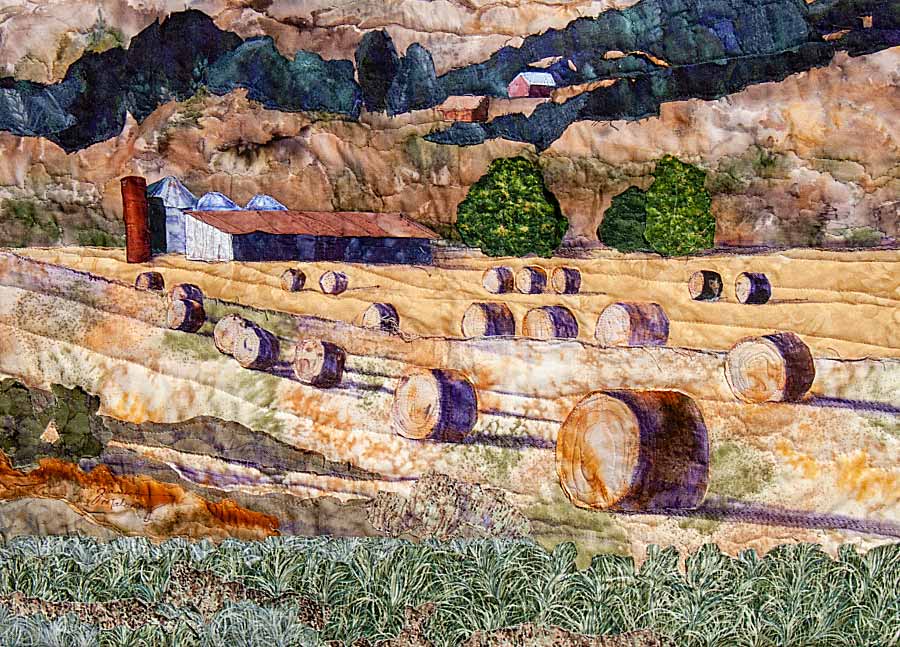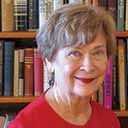The Jeremiah Tree came about through my childhood friend, Myrna Nabors, who introduced me to her sister, painter Jeanine Malaney, and soon we found ourselves deeply engaged in a journey toward places where our spiritual lives met. Finding inspiration from each other, we traveled across the Judeo-Christian landscape. The Jeremiah Tree emerged as a dialogue: between the poems and the paintings, as one art calls out to the other for response.
Here is an exchange between us as we collaborated on The Jeremiah Tree:
NT: For me, the first inspiration is often a sight that moves me. “Woman of Avila” began in St. Teresa’s native town of Avila, Spain. I was standing on the ramparts of the medieval walled town enjoying a panoramic view of the hills when I got a vivid sense of Teresa standing there as a young girl, and I wanted to capture that in words.
JM: The creative process for a painting begins for me with a passion to be expressed. I work out a composition, the foundation, establishing the focal point and supporting strata to lead the eye into the painting. I plan my use of light, color and texture to best express the essence of my message. Light is the magic; I look for and enhance the play of light. Color is the music and mood.
NT: I start writing words, lines as they come to me without thinking about the eventual form of the poem. But everything I write is a search for the right form—which means a marriage of sound and sense. Even if my inspiration doesn’t start with the sound of a poem—its particular music—that is very important. It’s like hunting in the dark, and suddenly the light goes on.
JM: In one photo that inspired me, I liked the strong play of light and shadow on the hay bales and on the barn this fall day in Yamhill, Oregon. There are wonderful late afternoon shadows playing across the fields. The harvest golds were mesmerizing. But in the photo the eye is confused by the bales scattered about so randomly. For my composition I rearranged the hay bales to lead the eye back to the focal point—the main barn and silos. I eliminated some of the buildings detracting from the focal point to simplify the composition.

THE TENDERNESS OF JEREMIAH
I was a naked leafless stem,
a stripling weak and bare of knowledge
when you called me, Lord.
You set before my eyes
the tender shoot of an almond tree,
drawing me near, quickening my heart.
Then I saw a seething pot, oily vapors
boiling over, spewing onto the plains
pounding armies from the North,
and I drew back in fear.
Suddenly there burst before me
an orchard of billowing almond trees,
flowery profusion of swaying white petals
rejoicing as, breaking free, they flew
through the air or fell to the earth.
So sweetly did their heady scent
enfold me, beckon to me,
that all vanished, save the felt warmth
of your touch on my mouth, which
I have ever longed for.
You made me an iron pillar,
but handed down words no pillar could bear.
In manhood I grew bearded, hoarse,
your words craggy in my mouth.
Always when I lifted up my eyes,
the hills put forth a continuous vision:
torrent of boulders, the crushing of Jerusalem.
You put me through so much.
Lord, for you I was a laughingstock in stocks.
My people dug a pit and dropped me in it;
my bones quaked in the abode of evil ones.
They excoriated me, my people,
and would have killed me if you had let them.
Your silence was the worst.
I would creep by night to a barren field,
lay myself down in the dirt,
press my cheek hard against the earth,
straining to hear your voice.
The day came when you cried out
your grief for your people
who had forsaken you,
and laid before me the charge
to bring them back to you.
Your grief, my Father,
grew entwined with my grief;
I became a gnarled thickened vine,
laboring to deliver your people.
I contended for you faithfully
forty years and more.
I withstood my people for you,
and withstood you for my people.
What more can a son do?
I asked: Are you the soul of my soul, Lord?
In time you gathered me up, brought me
into the hills to a fragrant olive grove,
where you showed me your son Jesus, weeping
over Jerusalem, and when my heart lurched,
you gave me Jesus for my brother.
What a God you are! Unutterable.
–from The Jeremiah Tree (2011)
